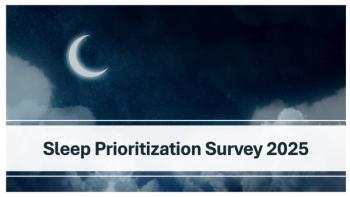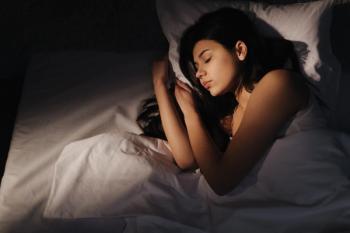
Anxiety Linked to Bedtime Procrastination
University of Arkansas researchers added to the understanding of how anxiety affects sleep with research that looked for associations between anxiety and bedtime procrastination and other patterns of poor sleep.
It’s no secret that sleep problems often arise in anxious individuals. In fact, more than 50% of primary care patients experience occasional insomnia, while 19% struggle with chronic insomnia.
Researchers at the University of Arkansas theorized that a reason people high in anxiety were more likely to engage in bedtime procrastination was because of the negative experience of trying to go to sleep while in a state of heightened arousal.
That led to a study where they looked at if total sleep time and bedtime procrastination mediated the association between anxiety and sleep problems.
“Sleep loss is a public health crisis and if we are going to help people get more sleep, we need to understand what is getting in the way of their sleep in the first place,” says lead author Rebecca L. Campbell, a doctoral student in the department of psychological science at the University of Arkansas. “Bedtime procrastination might explain some challenges with getting enough sleep.”
In the
A cohort of 308 adult primary care patients from two clinics comprised the study. About 70% of the study participants were female and the average age was 33. The volunteers completed a questionnaire regarding psychological health and sleep behaviors. They were asked questions about how often in the past two weeks they had felt tense or nervous, felt irritated, and found themselves daydreaming, worrying, or staring into space. The questionnaire also had questions about sleep habits, such as when people went to bed, when did they fall asleep and the number of hours they slept.
The total average sleep time was 7 hours a night with a 1.82 hour delay in falling asleep. Patients that experienced longer sleep duration exhibited significantly less anxiety and bedtime procrastination.
The results found that patients that were more anxious slept fewer hours per night and reported considerably greater bedtime procrastination, leading the study authors to speculate that the habit could be a form of anxious avoidance.
“Using structural equation modeling, we found higher anxiety related to higher sleep problems, partially mediated by bedtime procrastination but not total sleep time, Campbell says. This study highlights related factors like anxiety and pre-bedtime behaviors that may be effective treatment targets for sleep challenges.”
Campbell and Bridges believe that mental health clinicians, working with primary care patients, should investigate how anxiety and sleep problems may be linked and consider the role of anxiety in bedtime routines and bedtime procrastination.
Newsletter
Get the latest industry news, event updates, and more from Managed healthcare Executive.























